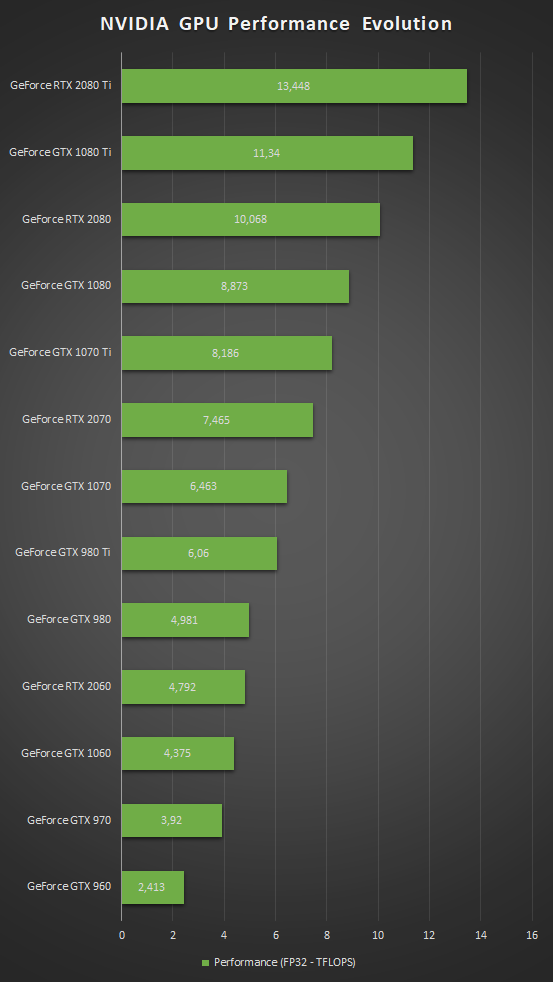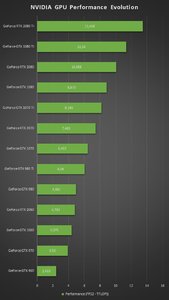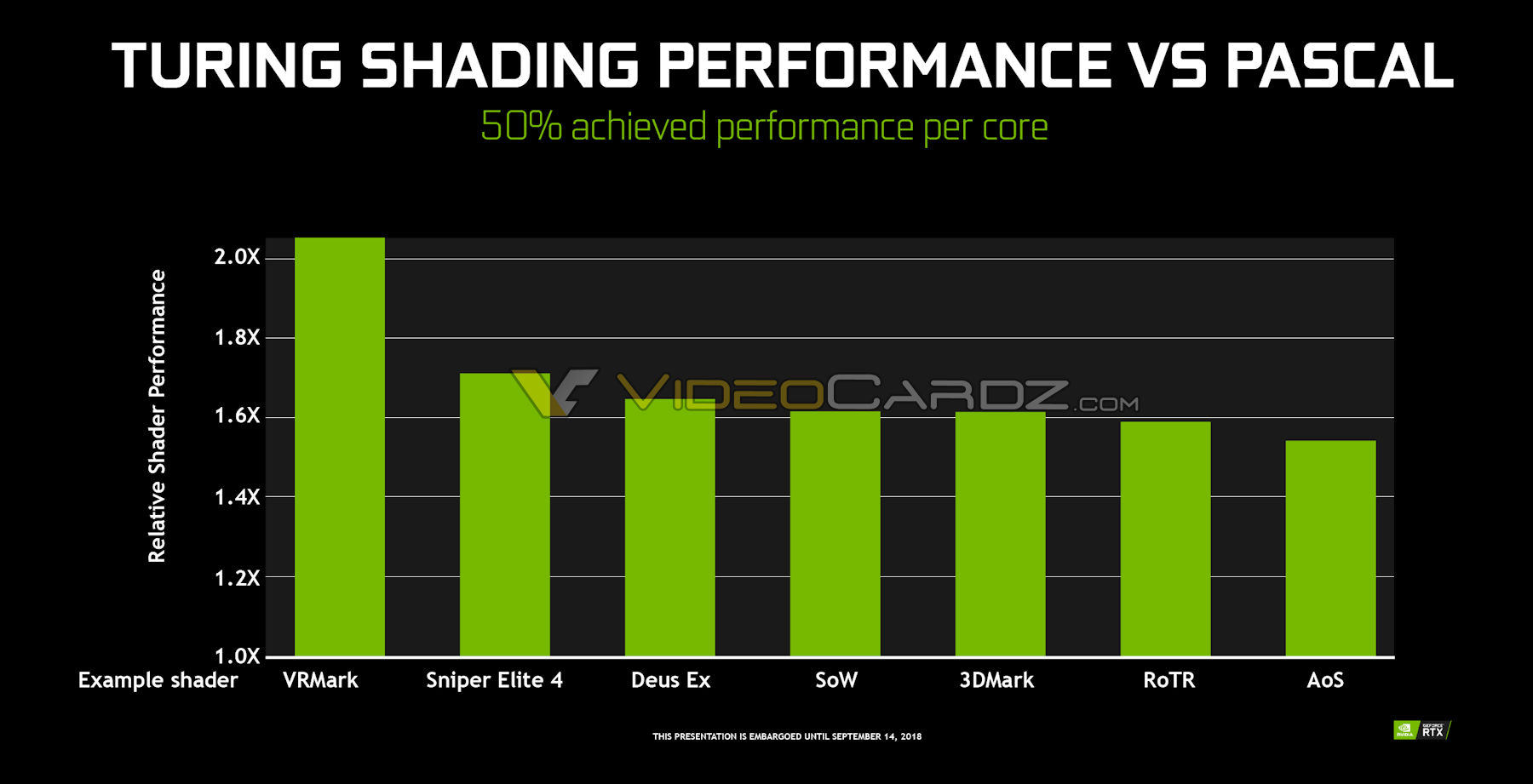WARNING: armchair, paper-based analysis ahead
Since there are no gaming benchmarks I was curious to see if the TITAN V represents a good approximation of what we can expect when it comes to gaming performance with the 2080 Ti...I was somewhat shocked that the TITAN V bests the 2080 Ti on paper in few pretty substantial ways:
My ghetto chart below:

(source1, source2)
So yeah, $3000 - $1200 you "save" a whole $1800 but it looks like gaming performance over the 1080 Ti will be in the 25% range (if we're lucky) if the TITAN V gives us any indication.
We are missing some data on ROPS and Texture Units for the 2080 Ti...
Thoughts? Is it all about the "RTX-enabled" games for now?
Since there are no gaming benchmarks I was curious to see if the TITAN V represents a good approximation of what we can expect when it comes to gaming performance with the 2080 Ti...I was somewhat shocked that the TITAN V bests the 2080 Ti on paper in few pretty substantial ways:
My ghetto chart below:

(source1, source2)
So yeah, $3000 - $1200 you "save" a whole $1800 but it looks like gaming performance over the 1080 Ti will be in the 25% range (if we're lucky) if the TITAN V gives us any indication.
We are missing some data on ROPS and Texture Units for the 2080 Ti...
Thoughts? Is it all about the "RTX-enabled" games for now?
Attachments
Last edited:
![[H]ard|Forum](/styles/hardforum/xenforo/logo_dark.png)



